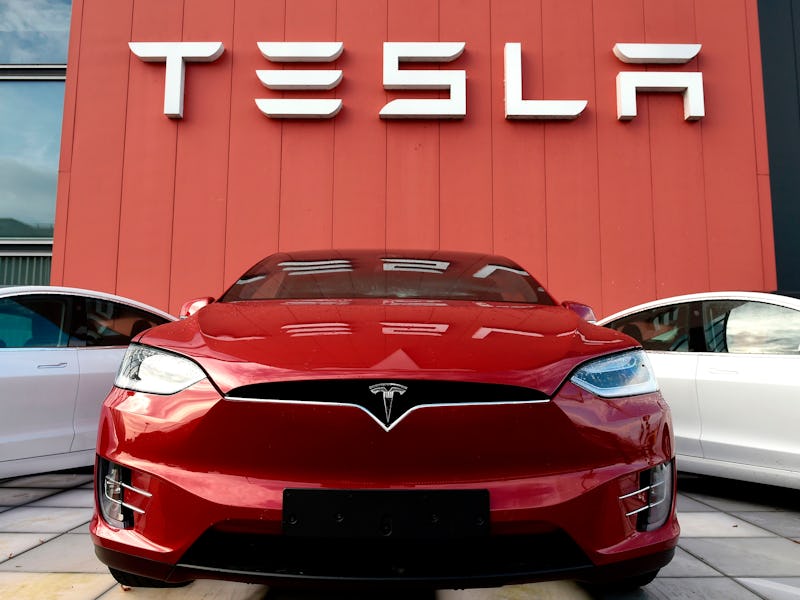Tesla’s big stock offer could help drive Elon Musk’s wildest dreams
The Tesla CEO has spoken about his plans for mass expansion. More money could drive the growth.

Tesla is making the most of its high stock price, announcing a new offering of common stock Thursday. The move could bring more money to Tesla, funding CEO Elon Musk's bold plans like a car factory on every continent and terawatt-hour levels of battery production.
The plan, announced in a blog post, will see Tesla issue $2 billion in common stock. A further $300 million will be offered over a 30-day period. Musk will purchase up to $10 million of the offering, and board member Larry Ellison will purchase up to $1 million. Tesla claims it will use the money "to further strengthen its balance sheet, as well as for general corporate purposes."
It comes at an impressive time for Tesla's stock price, which has soared from $235 six months ago to a peak of $887 on February 4. Tesla is now worth $138.6 billion, the second most valuable automaker in the world. Based on this performance, Musk is on course to receive a payout from a previously-agreed rewards package.
The plan was warmly received by analysts. Dan Ives, Wedbush Securities analyst and a Tesla bull, told CNBC the move was "smart" because it "takes any doomsday scenario around cash crunch...off the table."
The money could help Musk reach his goal of placing a car production facility on every continent, a move aimed at reducing complexity in manufacturing and bringing cars closer to consumers. Tesla has three Gigafactories in New York State, Nevada, and Shanghai. It also operates a car production facility in Fremont, California. Musk has announced plans for a factory in Berlin, and earlier this year floated the idea of a factory in Texas.
This new cash supply could make those plans even more ambitious. Cathie Wood, CEO of research firm ARK Invest, wrote on Twitter that the team "wouldn’t be surprised if Elon announces plans for another Gigafactory in China, a vote of confidence in the resilience of that country."
All of these extra factories could help Tesla meet the high demand for its cars. As of July 2019 the company was producing around 35 gigawatt-hours of batteries per year, but Musk has spoken before about his ambition to reach terawatt-hour levels of production. A lack of batteries has been cited as the reason for delays in Solar Roof and Semi truck production. The situation could deteriorate as Tesla launches the Model Y, Semi truck, Roadster and Cybertruck in the coming months and years. Evidence suggests Tesla is taking steps to further vertically integrate its battery production.
Tesla's Cybertruck.
A larger fleet of vehicles would also mean a step toward full autonomous driving. Every Tesla vehicle since October 2016 has been fitted with what the company claims is the necessary cameras and sensors for full self-driving. The cameras are currently used to offer semi-autonomous driving, like along highways. Tesla is expected to offer "feature complete" full self-driving in a very early form in a couple of months.
More Autopilot-equipped cars means more data. MIT research scientist Lex Fridman claims that Tesla has shipped nearly a million cars, with around 750,000 using the new sensor setup. That, he estimates, means Autopilot has driven around 2.2 billion miles. This figure could rise to 4.2 billion by 2021.
The stock decision is perhaps something of a surprise though, considering Musk's comments during the fourth quarter 2019 earnings call at the end of January. Responding to a question about raising capital considering the high stock price, Musk said the company was "actually spending money as quickly as we can," adding that there's "no artificial holdback on expenditures."
Perhaps after seeing the rising stock price, and knowing the number of grand plans in the pipeline, Musk decided to cash in while the good times are rolling.
Update 02/13 12:30 p.m. Eastern time: An earlier version of this story described Lex Fridman as an MIT professor. It has now been corrected.